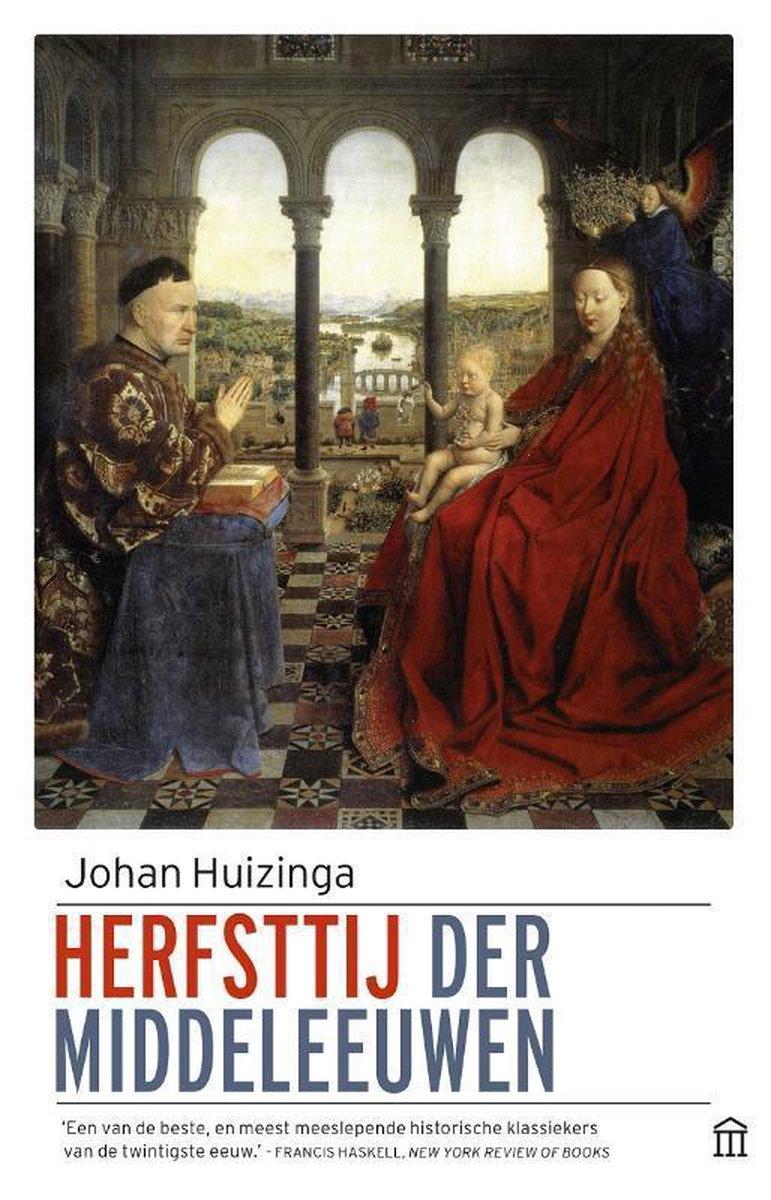The Waning of the Middle Ages
Johan Huizinga is the greatest of all Dutch cultural historians, whose fascination with the past speaks from every page of his work. He treats different areas and periods with equal ease: France and the Low Countries in the late Middle Ages, Italy and France during the Renaissance, the Dutch Republic during the Golden Age, the United States of America in the twentieth century. His approach was so broad that he found it easy to combine the history of language and the visual arts with what he called ‘the forms of thought and life’ characteristic of any given period.

In 1924 he achieved international renown with Herfsttij der Middeleeuwen, in which he presented a dazzling panorama of the cultural history of France and the Netherlands in the age of the Dukes of Burgundy. That same year his critical biography of the great humanist Erasmus appeared, in English as well as in Dutch.
During the 1930s, Huizinga grew increasingly perturbed by the course of events under Communism in the Soviet Union and National-Socialism in Hitler’s Germany. But he believed that he could detect disturbing developments even in his own west European cultural environment: the political system, the run-away economy, the daily press, radio and film, all filled him with grave concern. He wrote about this in his In de schaduwen van morgen (In the Shadow of Tomorrow), a bestseller in Dutch and in many other languages. From then on, he was also considered a cultural critic.
Huizinga gained further international renown with his Homo ludens, in which he framed the bold hypothesis that culture has emerged in all the great civilisations in the form of a game. In particular, the constitution, jurisprudence, warfare, culture in the narrower sense had their origin in serious games. This debatable but masterly study helped to make his name as a cultural philosopher.
His broad outlook and interdisciplinary approach, his concern with intellectual history and his evocative style made him – despite his expressly conservative views – one of the most modern of Dutch historians. The reason why his work was given new importance in the nineties is undoubtedly connected with his study of history for history’s sake: not the wish to alter the present but to gain wisdom through the study of the past. In a sense, this rendered him immune to changing fashion and imbued his work with a timeless and fresh appeal.
'Herfsttij' endures. The lesser of the two reasons for its doing so is its quality as a photograph album, fruit of the author’s vast reading and his artist’s eye. […] Yet Huizinga does more than regale us with images. His perception, in them and through them, is that of a poet.
London Review of Books
